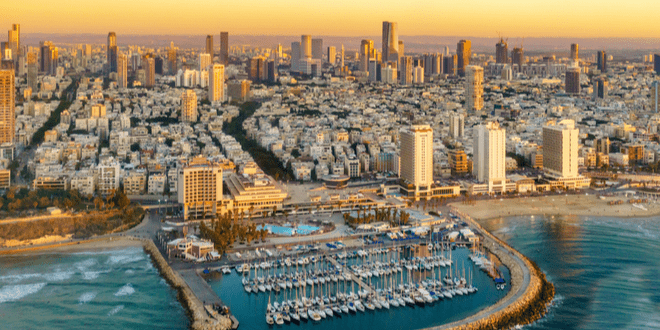The Economist Intelligence Unit, the research and analysis division of the venerable periodical The Economist, ranked Tel Aviv the most expensive city in the world to live in, according to their twice-yearly Worldwide Cost of Living Index. The index compares more than 400 individual prices in US dollars across 200 products and services in 173 cities. Tel Aviv climbed from fifth place last year to replace Paris which was ranked most expensive on last year’s index. The rise in ranking is credited to the strength of the shekel against the dollar, as well as increases in prices for transportation and groceries. The Econimist concluded that in Tel Aviv, prices of 10% of goods surveyed had risen. The global average rise in the prices of the items surveyed was 3.5% in the past year, versus 1.9% in the previous year, contributing to life becoming more expensive for most city dwellers. This year’s global price rise is the largest measured for five years.
The Economist attributes the strong standing of the shekel to Israel’s vibrant vaccination program. The numbers show that 62% of Israelis have had three doses of vaccine, and the shekel has appreciated against the dollar by 4%.
Paris and Singapore were tied for second place, with Zurich in third place and Hong Kong in fourth. New York was in sixth place, with Geneva in seventh followed by Copenhagen, Los Angeles, and Osaka, Japan.
Last year, the top ranking for the most expensive city was a three way tie matching Paris, Zurich and Hong Kong.
The data collected in August and September show prices went up an average of 3.5 percent in local currency terms, making this the fastest inflation rate recorded over the past five years. The largest increase was in the cost of transport, with an average rise of 21% in 2021, according to the survey.
“Although most economies across the world are now recovering as Covid-19 vaccines are rolled out, many major cities are still seeing spikes in cases, leading to social restrictions. These have disrupted the supply of goods, leading to shortages and higher prices.,” said Upasana Dutt, head of worldwide cost of living at the Economist Intelligence Unit. “Over the coming year, we expect to see the cost of living rise further in many cities as wages increase in many sectors. However, we are also expecting central banks to raise interest rates, cautiously, to stem inflation. So the price increases should start to moderate from this year’s level.”
“We can clearly see the impact in this year’s index, with the rise in petrol prices particularly stark,” she said, predicting that many cities will see rising prices in the coming year,addding that central banks are expected to raise interest rates cautiously to reducie inflation.
The average inflation figure does not include four cities with exceptionally high rates: Caracas, Damascus, Buenos Aires and Tehran. Tehran rose precipitously from 79th to 29th place in the ranking as US sanctions have pushed up prices and caused shortages. Other cities that have seen substantial price falls are Bangkok and Lima. Hong Kong had the most expensive gasoline prices, at $2.50 per liter. Branded cigarette prices went up 6.7% on average
The biggest drop in the rankings this year was by Rome, which fell from 21st place to 48th, thanks to significant declines there in prices of clothing and groceries. Damascus was ranked the world’s cheapest city to live in.




